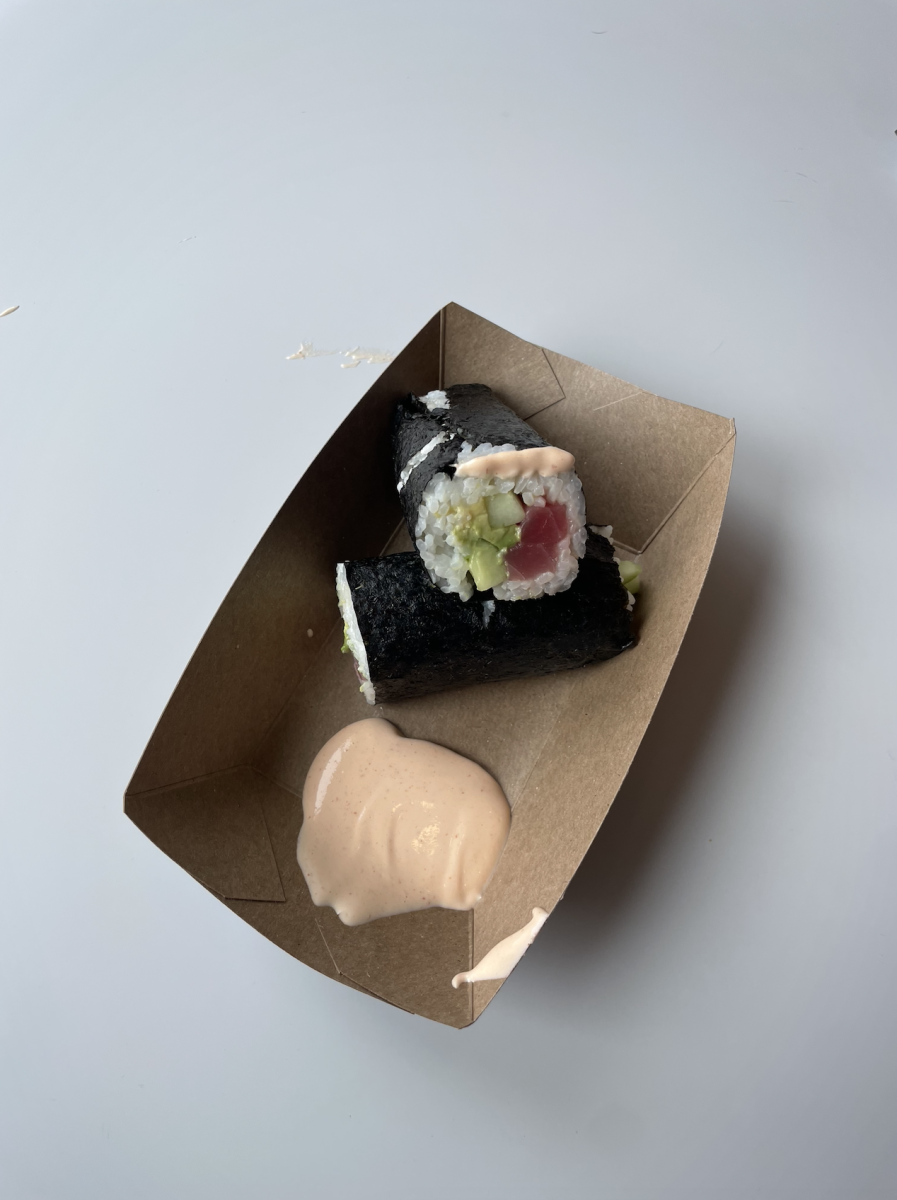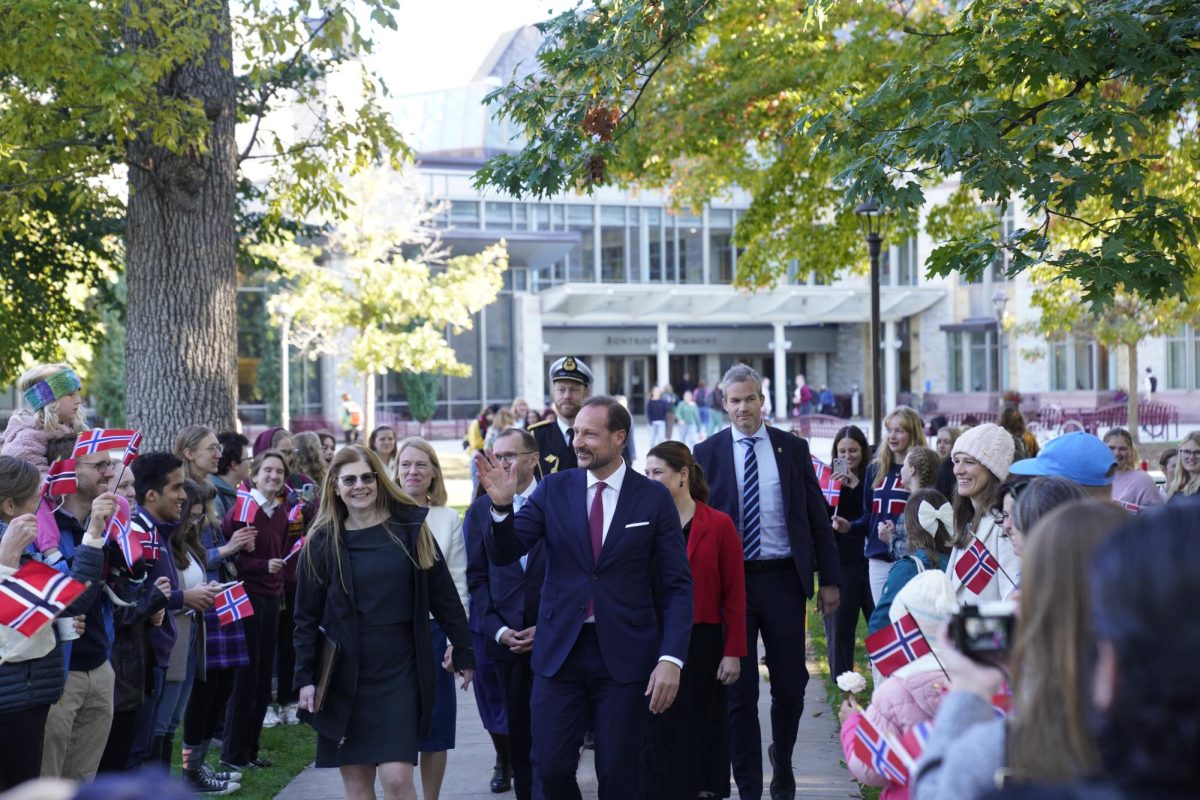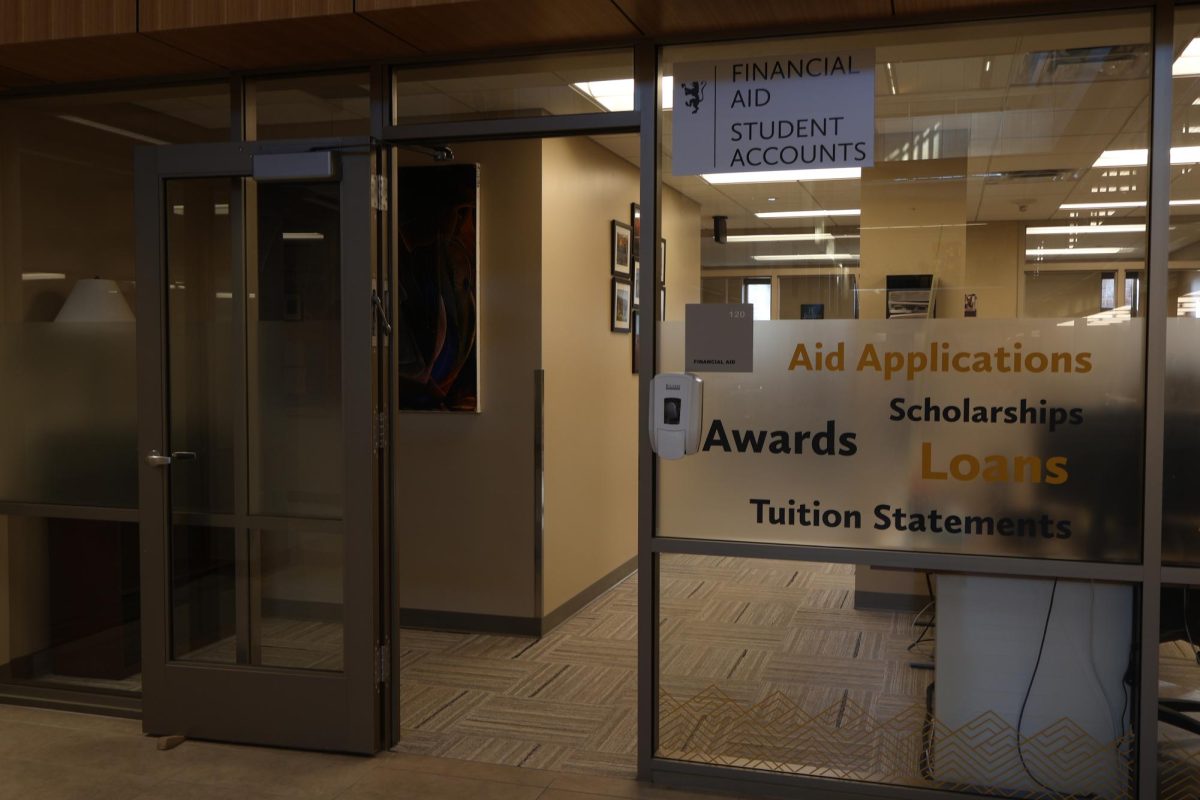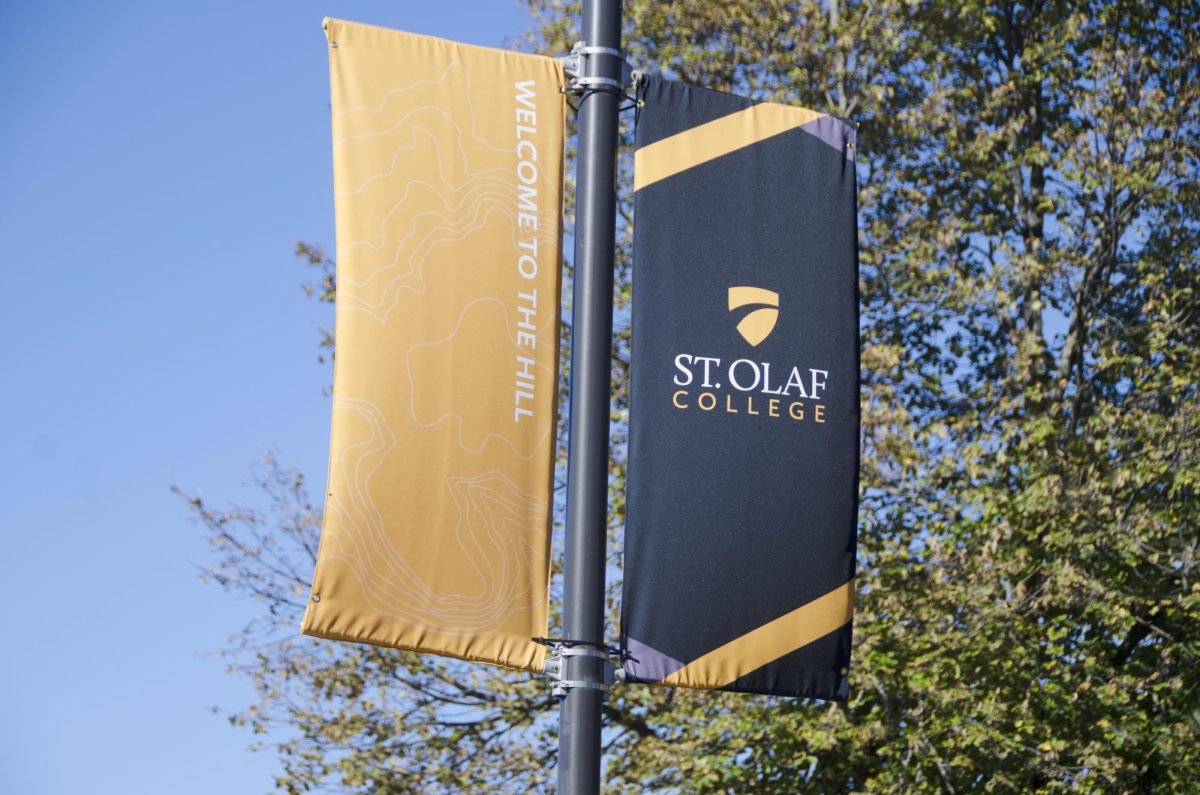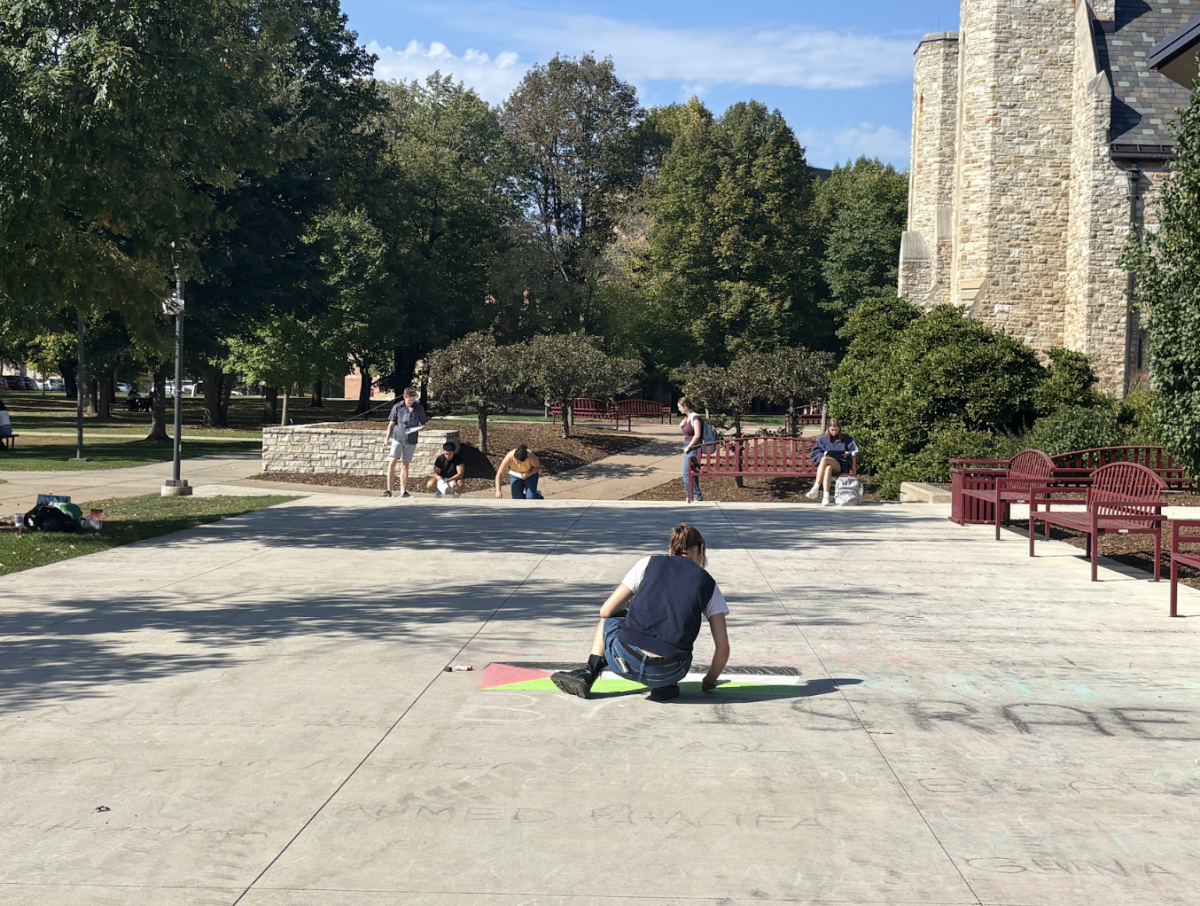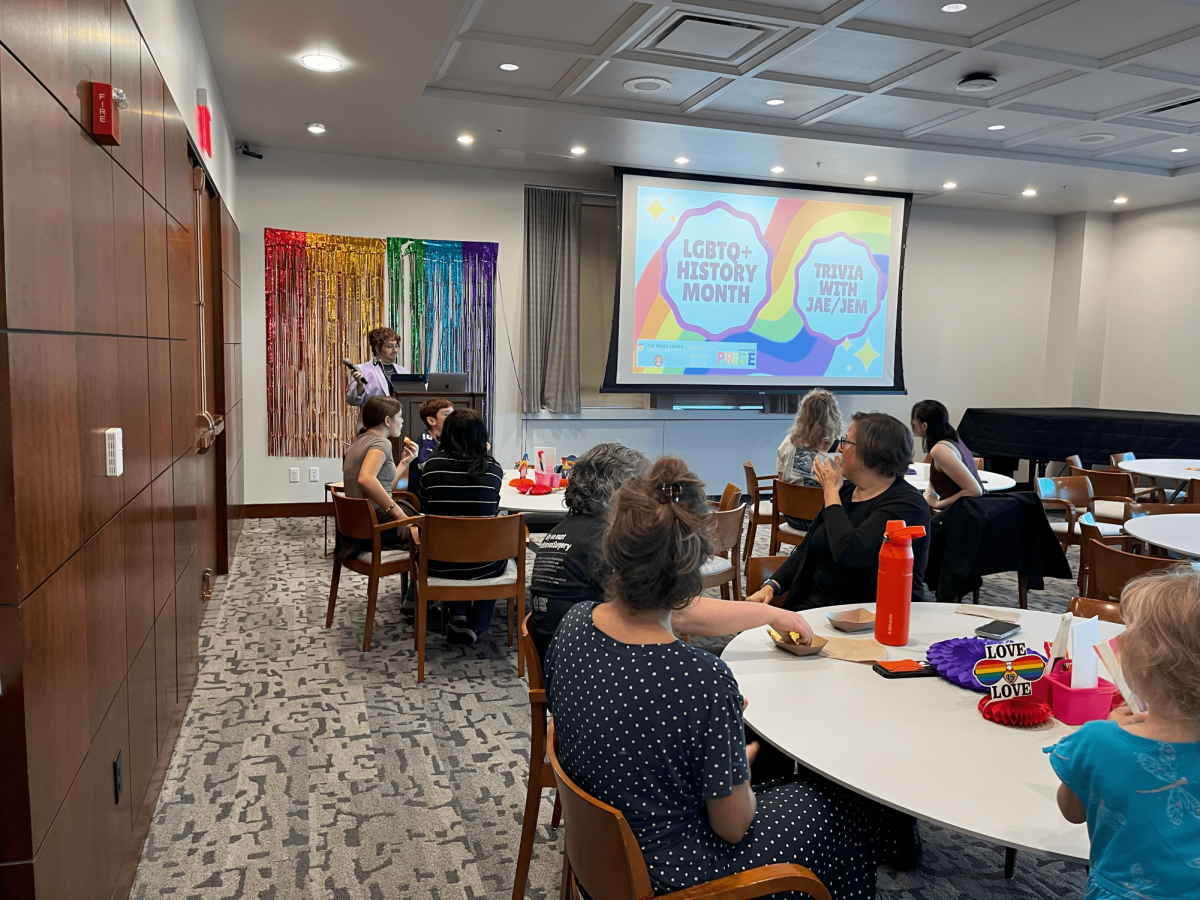This year, a trend has been observed at St. Olaf home sporting events: increased amounts of non-student athletes are filling the stands and the student section. The timing, perhaps, could not be more in accordance with the introduction of the Ole Pride Points program.
The program — currently in its second year of operation — is a partnership between the Office of Student Activities (OSA) and Athletics. At its core, it’s a reward system. When students swipe their ID card into a home sporting event, they earn one Ole Pride Point. As these points accumulate, students earn prizes, each one being a different St. Olaf swag item.
When a student earns three points, they receive a set of St. Olaf stickers in their post office box. Seven points? A t-shirt — made of soft, athleisure material — that reads “St. Olaf Superfan.” Those who earn even more points gain access to an exclusive “pride shop” webpage, where they can redeem them for other items, including sunglasses, rally towels, and a St. Olaf sweatshirt.
Students can check their current point balance online.
In an interview with The Olaf Messenger, Director of Student Activities Brandon Cash ’16 explained his multifaceted vision for the program. It’s an initiative that both encourages students to attend home sporting events — a quintessential aspect of the college experience — and also supports and incentivizes community involvement.
“We know that students [that] are connected and engaged often are happier and healthier people,” said Cash.
The program underwent a trial run during the COVID-19 pandemic, when information about event attendees was vital for contact-tracing purposes. The OSA and Athletics found that these statistics could be used in additional ways, such as understanding class-year distributions and crowd sizes. These statistics also hold the potential to create changes on campus. A disparity currently exists in that St. Olaf’s women-identifying sports teams draw, on average, smaller audiences.
Before the program’s launch, the OSA could only access engagement data from events put on by Student Government Association, some student organizations, and the Lion’s Pause. They have now been able to garner new insights from the athletics sector. Cumulatively, this data helps the office shape future programming for students, and student input is as easy as the swipe of an ID card.
“Just by being you and showing up, that’s good,” Cash said. “And we can use that to make sure we’re improving your experience broadly, too.”
In reflecting on the Ole Pride Points program, Cash expressed gratitude to his collaborators, notably Athletic Director Kelly Mahlum.
“It’s been an awesome partnership as an office,” Cash said.

